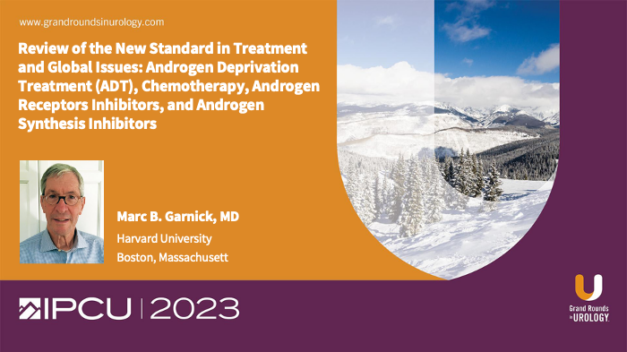Results From TRITON3
Alan H. Bryce, MD, presents results from the TRITON3 study comparing the efficacy of a PARP inhibitor (rucaparib) against docetaxel in mCRPC treatment. Dr. Bryce reviews the study design, emphasizing the options presented to the study participants in both treatment arms. The study yielded evidence that rucaparib might be superior to docetaxel-containing treatments.
Read More
